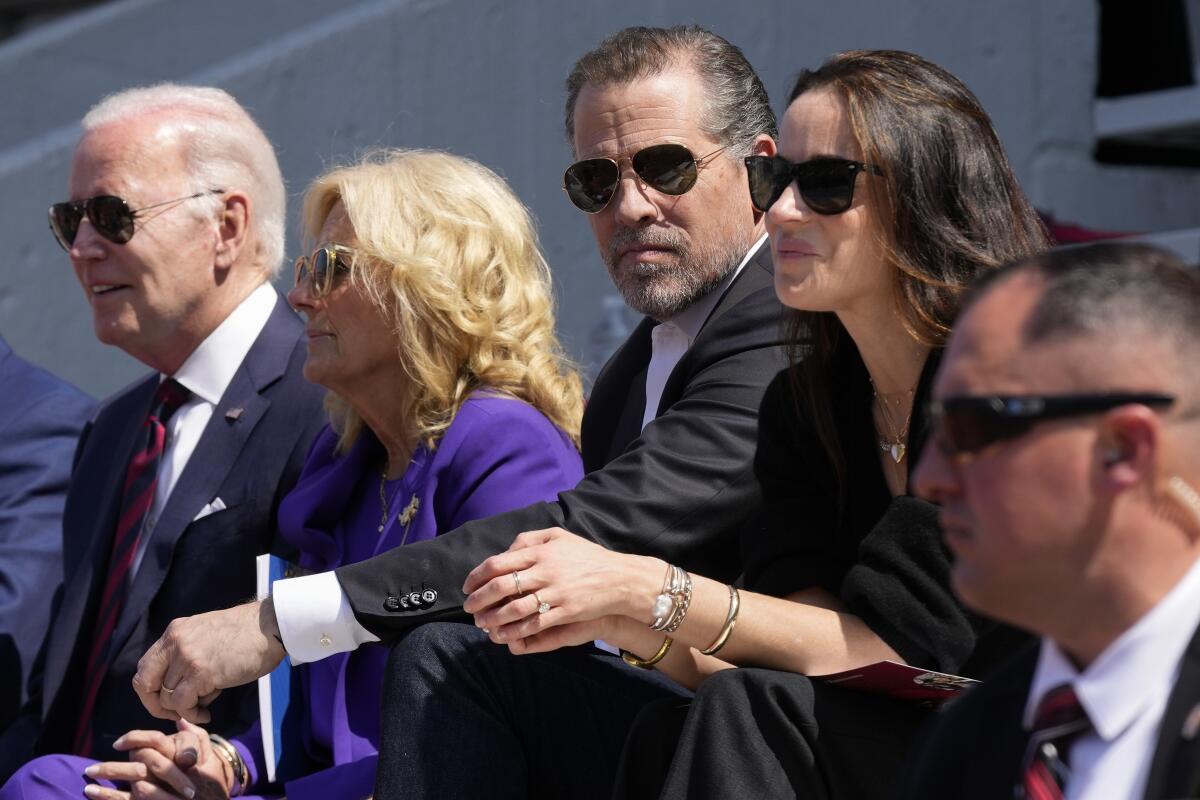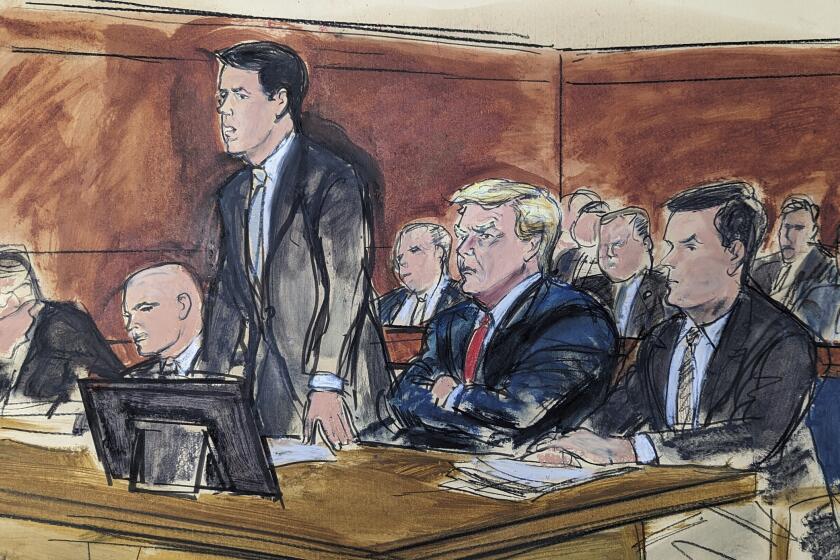Column: Is the Hunter Biden plea deal really a slap on the wrist? Not remotely

- Share via
Hunter Biden’s tentative federal plea agreement is bound to displease partisans on both sides, which is one sign that it’s a fair and suitable disposition of the long-standing investigation of the president’s son.
The deal revealed in court papers Tuesday requires the younger Biden to plead guilty to two misdemeanors stemming from a failure to pay taxes owed for 2017 and 2018. The government also levels a felony charge that Biden lied about his drug use when he acquired a gun in 2018. Rather than require him to plead guilty to that crime, the government agrees to drop the charge if Biden keeps his nose clean for two years under a practice known as pretrial diversion.
Biden haters will assail the arrangement as a sweetheart deal proving that the Justice Department is in the tank for President Biden. Hater in chief Donald Trump has already accused the “corrupt Biden DOJ” of giving Hunter Biden a “traffic ticket.”
The charge is of course spurious: Not only President Biden but also Atty. Gen. Merrick Garland kept their hands off the case. Delaware U.S. Atty. David Weiss, a Trump holdover, was allowed to remain in office precisely so that he could finish the case, even though new administrations typically appoint their own top prosecutors.
The former president’s arguments against the federal indictment are not likely to succeed. But with Judge Aileen Cannon’s help, they could cause pivotal delays.
That arrangement kept the case at arm’s length from the administration but could warrant an objection from Biden’s defenders. As the late Justice Antonin Scalia once observed of special prosecutors, Weiss’ presence exerted a nearly irresistible pull toward bringing some charge against Hunter Biden. A dismissal of the case might have been plausible given an unremarkable defendant and a prosecutor appointed through the standard process, but it was basically off the table from the time Weiss was allowed to stay in office to oversee this case.
Biden family supporters could also note that while the charges in the proposed plea agreement are bona fide, they’re not exactly the crimes of the century. Hunter Biden has reportedly paid the more than $100,000 in taxes he allegedly failed to pay on time. That doesn’t excuse the crime, but it does distinguish him from the typical tax defendant.
As for the felony count, Biden apparently had the gun in question for less than two weeks before his then-girlfriend threw it away. More important, as UCLA law professor Adam Winkler has pointed out, the Justice Department rarely charges anyone for lying on gun applications, especially not for false statements about drug use. When it does, the case nearly always involves a defendant who, unlike Biden, is suspected of using the weapon to commit a crime.
The charge may be even more questionable under the federal courts’ recent 2nd Amendment jurisprudence. Last year, the Supreme Court struck down a New York law that required a special reason for carrying a gun. And this month, the U.S. 3rd Circuit Court of Appeals, which includes Delaware, held that a Pennsylvania law prohibiting felons from possessing guns was unconstitutional if applied to people convicted of nonviolent crimes.
The bottom line is that both sides had plenty to gain or lose from the Hunter Biden case, and that may well have helped produce a sensible bargain.
The proposed deal, which is subject to approval by a judge, would allow Biden to avoid going to jail and turn the page on an extremely dark chapter of his life. And it would enable Weiss and his department to obtain a conviction and avoid trying a case with dubious prospects before a jury. A prosecution of a defendant who committed tax crimes during a period of drug addiction, and then turned his life around and paid the taxes, would be very losable.
None of this will prevent Trump and his congressional minions from screaming about Justice Department corruption. We can only hope that it will be apparent to many observers on both sides of the aisle that literally nothing the administration could do would fail to trigger the same response. If the department were guided by such wild-eyed detractors, it truly would be corrupt — much as Trump himself has promised it will be if he regains the reins of power.
Harry Litman is the host of the “Talking Feds” podcast. @harrylitman
More to Read
A cure for the common opinion
Get thought-provoking perspectives with our weekly newsletter.
You may occasionally receive promotional content from the Los Angeles Times.












